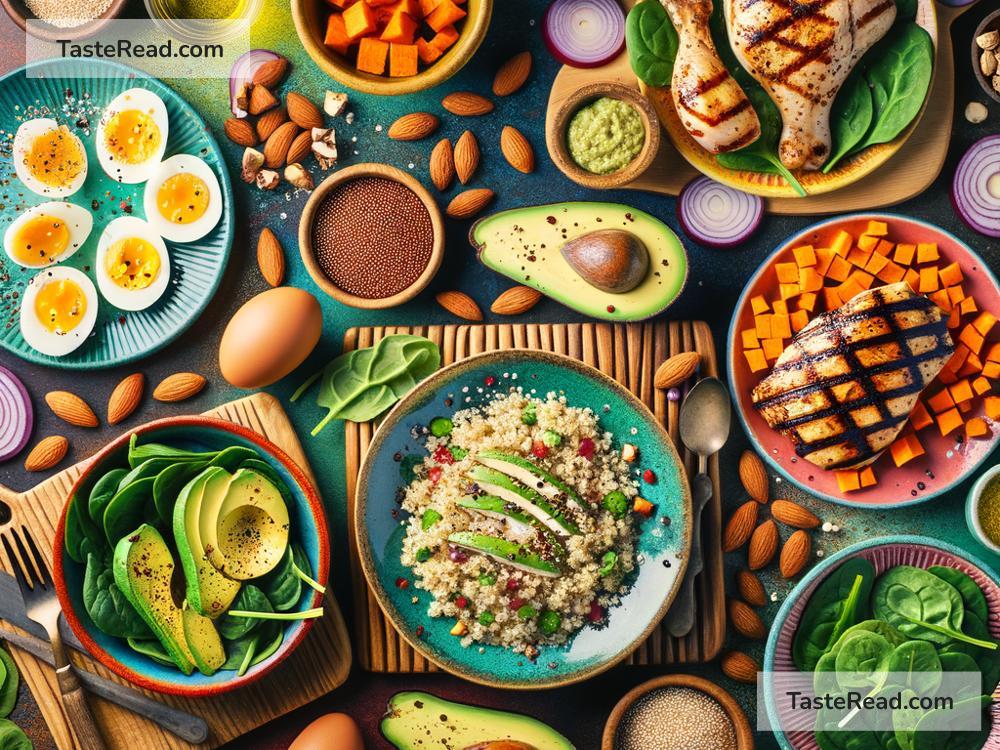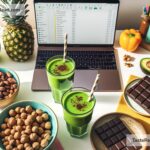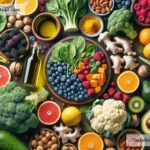Foods for Enhancing Lean Muscle Mass
If building lean muscle is your goal, your diet plays a critical role. Exercise and strength training are essential, but what you eat can fuel your workouts, repair muscle tissue, and help muscles grow stronger and bigger. This blog will guide you through the best foods to eat to enhance lean muscle mass—all explained in simple and easy-to-understand terms.
Why Does Nutrition Matter for Muscle Growth?
Muscle growth happens after exercise when your muscles repair tiny tears that occur during strength training. This process requires protein, carbohydrates, fats, vitamins, and minerals to rebuild and strengthen the tissues. Without proper nutrition, your muscles will struggle to recover and grow.
Eating the right foods ensures your body gets the nutrients it needs to increase muscle size while minimizing fat gain. Below are the top categories of foods that can help you achieve your lean muscle goals.
1. Proteins: The Building Block of Muscle
Protein is the most important nutrient when it comes to building lean muscle. It provides amino acids, which are vital for repairing and growing muscle tissue. Aim to include a good source of protein in every meal and snack.
Examples of High-Protein Foods:
- Chicken breast: A lean source of protein with very little fat. Great for muscle growth.
- Eggs: High-quality protein along with healthy fats. The yolks contain vitamins that support muscle-building.
- Fish (like salmon, tuna, and cod): Salmon is rich in protein and omega-3 fatty acids, which help reduce muscle inflammation. Tuna and cod are lower-fat options.
- Dairy products (Greek yogurt, cottage cheese, milk): Packed with protein and calcium for strong bones and muscles. Greek yogurt contains double the protein of regular yogurt.
- Plant-based options (lentils, chickpeas, tofu, tempeh): These are great for vegetarians and vegans. Lentils and chickpeas also offer carbs, essential for energy during workouts.
2. Carbohydrates: Your Energy Source
Carbs often get a bad reputation, but they’re necessary for muscle building because they provide your body with energy. Without enough carbs, you might feel too tired to train effectively. Post-workout carbs also help replenish glycogen stores (your body’s energy reserves) and promote muscle recovery.
Examples of Healthy Carbs:
- Whole grains (brown rice, quinoa, oats): Steady energy due to their high fiber content. Quinoa is also a source of protein.
- Sweet potatoes: Nutrient-rich, with slow-digesting carbs. Plus, they contain vitamins that aid recovery.
- Fruits (bananas, berries, apples): Natural sugars from fruits provide quick energy, and they’re loaded with antioxidants to prevent cell damage. Bananas are great after a workout because they replenish potassium.
- Legumes (black beans, lentils): Packed with both carbs and protein, making them a muscle-friendly food.
3. Healthy Fats: Boost Hormone Production
Healthy fats are important for hormone regulation, including testosterone, which plays a big role in muscle growth. They also help your body absorb key vitamins like A, D, E, and K.
Examples of Healthy Fats:
- Avocados: Filled with heart-healthy fats and essential nutrients.
- Nuts and seeds (almonds, walnuts, chia seeds): Portable snacks high in healthy fats, protein, and omega-3s.
- Olive oil: A simple way to add healthy fats to your meals. Drizzle it over salads or veggies.
- Fatty fish (like salmon and mackerel): Rich in omega-3s, which reduce inflammation and improve muscle recovery.
4. Vegetables: Don’t Forget the Greens!
Vegetables are full of vitamins, minerals, and antioxidants that support muscle recovery and overall health. They help your body function properly so you can keep training hard.
Examples of Muscle-Friendly Vegetables:
- Spinach and kale: Rich in iron and magnesium, which aid muscle function and energy production.
- Broccoli: High in vitamin C and fiber, which boost immunity and digestion.
- Bell peppers: Loaded with antioxidants that help repair tissues after workouts.
- Zucchini and asparagus: Low-calorie veggies that provide key nutrients for recovery.
5. Hydration: Don’t Discount Water
While water isn’t a “food,” it’s worth mentioning because hydration impacts muscle performance. Muscles are about 75% water, so staying hydrated helps them function properly. If you’re dehydrated, your workouts and recovery might suffer.
Fluids for Hydration:
- Water: Drink plenty before, during, and after workouts.
- Coconut water: A natural source of electrolytes.
- Homemade smoothies: Ideal for combining protein, carbs, and hydration in one drink.
6. Snacks and Supplements: Extra Boosts
Sometimes you need a quick snack or a little extra help from supplements to meet your nutritional needs. While whole foods should always be your priority, snacks and supplements can be convenient.
Examples:
- Protein bars or shakes: Great for after workouts when you need a fast dose of protein.
- Peanut butter on whole-grain toast: Combines protein, healthy fats, and carbs for energy and recovery.
- Creatine supplements: Can help increase strength and muscle size when used correctly.
Putting It All Together
Building lean muscle isn’t just about eating one type of food—it’s about balance. Combine protein, carbs, fats, vegetables, and hydration in your meals to support muscle growth and recovery. Try to eat a variety of foods to ensure your body gets all the nutrients it needs. Also, spread your meals throughout the day so your muscles have a steady supply of energy and nutrients to grow.
Consistency is key. Combine proper nutrition with regular strength training, and you’ll be on your way to enhancing your lean muscle mass! Remember, it’s a journey, so take it one step at a time.
Now, go fuel your workouts and enjoy building a stronger, healthier body!


